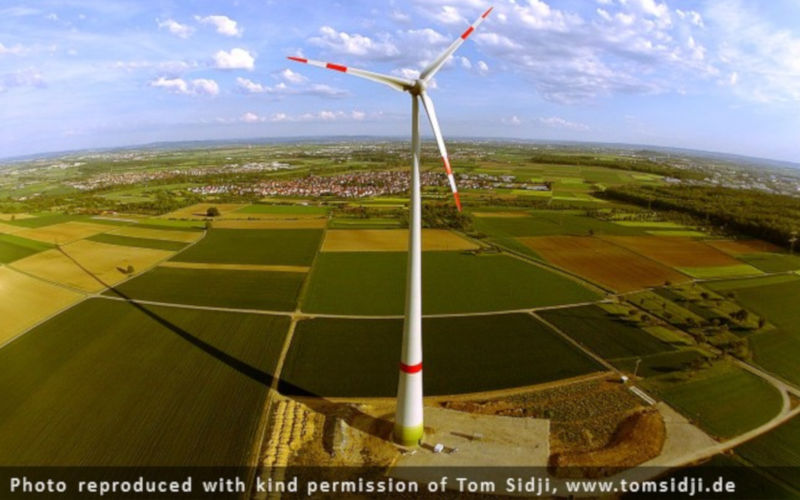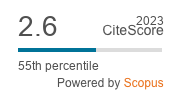Competing Wind Energy Discourses, Contested Landscapes
DOI:
https://doi.org/10.3097/LO.201438Keywords:
Local energy politics, Poststructuralist discourse theory, Social construction of landscapesAbstract
The impairment of landscapes is a concern constantly raised against wind energy developments in Germany as in other countries. Often, landscapes or landscape types are treated in the literature as essentialist or at least as uncontested categories. We analyse two examples of local controversies about wind energy, in which “landscape” is employed by supporters and opponents alike, from a poststructuralist and discourse theoretical angle. The aim is to identify and compare landscape constructs produced in the micro discourses of wind energy objectors and proponents at local level (a) within each case, (b) between the two cases and (c) with landscape constructs that were previously found in macro discourses. One major finding is that several different landscapes can exist at one and the same place. Furthermore there seems to be a relatively stable set of competing landscape concepts which is reproduced in specific controversies. The paper concludes by highlighting practical consequences and by identifying promising avenues of further research.
References
Blackbourn, D. (2006). The Conquest of Nature: Water, Landscape, and the Making of Modern Germany,
Blatter, J., Janning, F., & Wagemann, C. (2007). Qualitative politikanalyse. Qualitative Politikanalyse.Eine Einführung in Forschungsansätze Und Methoden,
Bourdieu, P. (1991). Physischer, Sozialer Und Angeeigneter Raum, , 25-34.
Cosgrove, D. (2003). Landscape: Ecology and semiosis. Cultural Heritage in Changing Landscapes,
Dryzek, J. S. (1997). The Politics of the Earth: Environmental Discourses,
Dux, B. (2009). Hessische/Niedersächsische Allgemeine Zeitung,
Dux, B. (2009). Hessische/Niedersächsische Allgemeine Zeitung,
Eisenmann, A. (2011). Zum thema windkraft in ingersheim: Landschaftseingriffnicht zu rechtfertigen. Bietigheimer Zeitung,
Ellis, G., Barry, J., & Robinson, C. (2007). Many ways to say 'no', different ways to say 'yes': Applying Q-methodology to understand public acceptance of wind farm proposals. Journal of Environmental Planning and Management, 50(4), 517-551. doi:10.1080/09640560701402075
Feindt, P. H., & Oels, A. (2005). Does discourse matter? discourse analysis in environmental policy making. Journal of Environmental Policy and Planning, 7(3), 161-173. doi:10.1080/15239080500339638
Fischer, F. (1998). Beyond empiricism: Policy inquiry in postpositivist perspective. Policy Studies Journal, 26(1), 129-146. doi:10.1111/j.1541-0072.1998.tb01929.x
Foucault, M. (2005). [1976] vorlesung vom 14. januar 1976. Michel Foucault,
Foucault, M. (1983). [1976]. sexualität und wahrheit: Der wille zum wissen. Suhrkamp, Frankfurt,
Gailing, L., & Leibenath, M. (2010). Discourses, institutions and governance: Social scientific approaches to the object of research, cultural landscape. [Diskurse, institutionen und governance: Sozialwissenschaftliche zugänge zum untersuchungsgegenstand kulturlandschaft] Berichte Zur Deutschen Landeskunde, 84(1), 9-25.
Gailing, L., & Leibenath, M. (2013). The social construction of landscapes: Two theoretical lenses and their empirical applications. Landscape Research, , 1-16.
Gailing, L., & Leibenath, M. (2012). Von der schwierigkeit, „Landschaft“ oder „Kulturlandschaft“ allgemeingültig zu definieren. Raumforschung Und Raumordnung, 70(2), 95-106.
Gee, K. (2010). Offshore wind power development as affected by seascape values on the german north sea coast. Land use Policy, 27(2), 185-194. doi:10.1016/j.landusepol.2009.05.003
Götte, A., & Degenhardt-Meister, I. (2009).
Grimm, E. (2011). Beelzebub. ludwigsburger kreiszeitung.
Haecker, W. -. (2010). Taugt nicht als vorzeigeobjekt für die energiewende. Bietigheimer Zeitung,
Henderson, G. (2003). What (else) we talk about when we talk about landscape: For a return to the social imagination. Everyday America: Cultural Landscape Studies After J.B.Jackson, , 178-198.
Howarth, D. (2005). Applying discourse theory: The method of articulation. Discourse Theory in European Politics: Identity, Policy and Governance, , 316-349.
Howarth, D. (2010). Power, discourse, and policy: Articulating a hegemony approach to critical policy studies. Critical Policy Studies, 3(3-4), 309-335. doi:10.1080/19460171003619725
Howarth, D., & Griggs, S. (2012). Poststructuralist policy analysis: Discourse hegemony and critical explanation. The Argumentative Turn Revisited: Public Policy as Communicative Practice, , 305-342.
Howarth, D., & Stavrakakis, Y. (2000). Introducing discourse theory and political analysis. Discourse Theory and Political Analysis, , 1-23.
Huber, K., & Huber, W. (2010). Offener Brief Von Karin Und Wolfgang Huber,
Jessup, B. (2010). Plural and hybrid environmental values: A discourse analysis of the wind energy conflict in australia and the united kingdom. Environmental Politics, 19(1), 21-44. doi:10.1080/09644010903396069
Jones III, J. P., & Natter, W. (1999). Space 'and' representation. Text and Image: Social Construction of Regional Knowledges, , 239-247.
Kneißl, R. (2009). Hessische/Niedersächsische Allgemeine Zeitung,
Kühne, O. (2009). Grundzüge einer konstruktivistischen landschaftstheorie und ihre konsequenzen für die räumliche planung. Raumforschung Und Raumordnung, 67(5-6), 395-404.
Laclau, E. (1990). New Reflections on the Revolution of our Time,
Laclau, E. (1993). Discourse.A Companion to Contemporary Philosophy.,
Laclau, E., & Mouffe, C. (1985). Hegemony and Socialist Strategy,
Lefebvre, H. (1991). [1974], the Production of Space,
Leibenath, M. (2013). Konstruktivistische, interpretative landschaftsforschung: Prämissen und perspektiven. Transcript, Bielefeld,
Leibenath, M., & Otto, A. (2012). Diskursive konstituierung von kulturlandschaft am beispiel politischer windenergiediskurse in deutschland. Raumforschung Und Raumordnung, 70(2), 119-131.
Leibenath, M., & Otto, A. (2013). Local debates about 'landscape' as viewed by german regional planners: Results of a representative survey in a discourse-analytical framework. Land use Policy, 32, 366-374. doi:10.1016/j.landusepol.2012.11.011
Leibenath, M., & Otto, A. (2013). Windräder in wolfhagen -eine fallstudie zur diskursiven konstituierung von landschaften. Transcript, Bielefeld,
Leipold, S. (2014). Creating forests with words - A review of forest-related discourse studies. Forest Policy and Economics, 40, 12-20. doi:10.1016/j.forpol.2013.12.005
Müller, W. (2010). Mach Mit (3): BI "Gegenwind-Husa-Renhof" Zur Verhinderung Einer Windkraftan-Lage (WKA),
Müller, W. (2010). Mach mit (1): Husarenhof-bürgerinitiative zur verhinderung einer windkraftanlage. Kein Ökologie-Und Ökonomie-Unfug Am Standort Husarenhof/Lerchenhof,
Müller, W. (2010). Mach mit (3): BI, gegenwind-husarenhof' zur verhinderung einer windkraftanlage (WKA). Öko-Und Ökonomie-Unfug? Nein!,
Nadaï, A., & van der Horst, D. (2010). Wind power planning, landscapes and publics. Land use Policy, 27(2), 181-184. doi:10.1016/j.landusepol.2009.09.009
Natter, W., & Jones, J. P. (1993). Signposts toward a poststructuralist geography. Postmodern Contentions: Epochs, Politics, Space, , 165-203.
Olwig, K. R. (2001). Landscape as a contested topos of place, community and self. Textures of Place: Exploring Humanist Geographies, , 93-117.
Otto, A., & Leibenath, M. (2010). The interrelation between collective identities and place concepts in local wind energy conflicts. Local Environment,
Smith, N., & Hay, C. (2008). Mapping the political discourse of globalisation and european integration in the united kingdom and ireland empirically. European Journal of Political Research, 47(3), 359-382. doi:10.1111/j.1475-6765.2007.00728.x
Szarka, J. (2004). Wind power, discourse coalitions and climate change: Breaking the stalemate? European Environment, 14(6), 317-330. doi:10.1002/eet.367
Warren, C. R., Lumsden, C., O'Dowd, S., & Birnie, R. V. (2005). 'Green on green': Public perceptions of wind power in scotland and ireland. Journal of Environmental Planning and Management, 48(6), 853-875. doi:10.1080/09640560500294376
Wassmuth, K. (2009). Einseitige ziele: Zum thema windkraft auf dem rödeser berg. Hessische/Niedersächsische Allgemeine Zeitung 06.03., , 2012.
Willy, M. (2010). Helikopter-demo gegen windrad. Stuttgarter Zeitgung 19.05.2010,
Wolsink, M. (2007). Planning of renewables schemes: Deliberative and fair decision-making on landscape issues instead of reproachful accusations of non-cooperation. Energy Policy, 35(5), 2692-2704. doi:10.1016/j.enpol.2006.12.002
Wolsink, M., & Breukers, S. (2010). Contrasting the core beliefs regarding the effective implementation of wind power. an international study of stakeholder perspectives. Journal of Environmental Planning and Management, 53(5), 535-558. doi:10.1080/09640561003633581
Wüstenhagen, R., Wolsink, M., & Bürer, M. J. (2007). Social acceptance of renewable energy innovation: An introduction to the concept. Energy Policy, 35(5), 2683-2691. doi:10.1016/j.enpol.2006.12.001
Wylie, J. (2007). Landscape (key ideas in geography). Landscape, Key Ideas in Geography,
Yin, R. K. (1994). Case Study Research: Design and Methods,

Downloads
Published
How to Cite
Issue
Section
License
Copyright (c) 2019 Markus Leibenath, Antje Otto

This work is licensed under a Creative Commons Attribution 4.0 International License.










